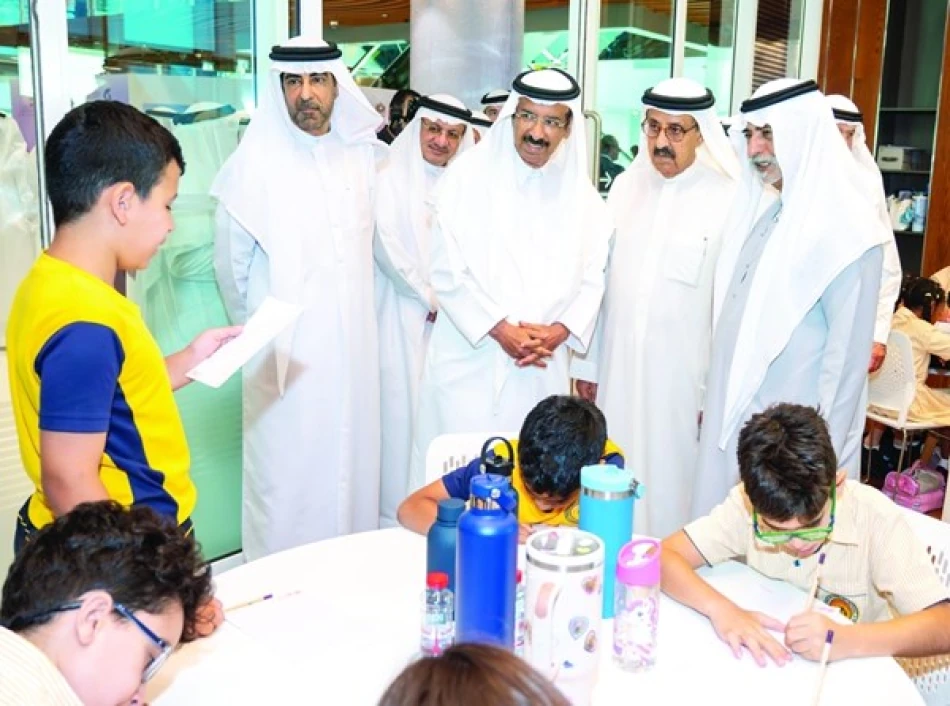
Nuhayan bin Mubarak: Preserving National Identity a Top Priority for the UAE
UAE Launches Major Cultural Initiative to Strengthen National Identity Through Creative Arts
The UAE is doubling down on cultural diplomacy and national identity preservation through a comprehensive new initiative that brings together over 1,200 artists, writers, and researchers. The "Thinkers and Creators" forum, launched by the Watan Fund in partnership with Mohammed bin Rashid Library, signals the Emirates' strategic shift toward leveraging soft power and creative industries to reinforce its position as a global cultural hub while maintaining its distinct national character.
High-Level Government Commitment to Cultural Strategy
Sheikh Nahyan bin Mubarak Al Nahyan, Minister of Tolerance and Coexistence and Chairman of the Watan Fund, inaugurated the forum with clear backing from the highest levels of government. The initiative directly stems from directives by President Sheikh Mohamed bin Zayed Al Nahyan, who has consistently prioritized national identity as a cornerstone of the UAE's development strategy.
This top-down approach reflects the UAE's systematic method of nation-building, where cultural initiatives receive the same strategic attention as economic diversification programs. The partnership with Mohammed bin Rashid Library—described as a "leading cultural and knowledge beacon"—demonstrates how the UAE leverages its world-class infrastructure to support broader policy objectives.
Defining Emirati Identity in a Globalized World
The forum's core mission addresses a challenge facing many rapidly developing nations: how to maintain cultural authenticity while embracing globalization. Sheikh Nahyan emphasized that Emirati national identity is simultaneously Arab, Islamic, and global—a formulation that balances tradition with the UAE's role as an international business and cultural crossroads.
The Soft Power Calculation
Officials explicitly framed national identity as part of the UAE's "soft power" arsenal—a recognition that cultural influence translates into geopolitical and economic advantages. This mirrors successful models in countries like South Korea, which leveraged cultural exports to enhance global standing, or Singapore, which carefully crafted a multicultural identity to support its role as a regional hub.
Mohammed Al Marr, Chairman of Mohammed bin Rashid Library, illustrated this balance by citing two examples: the Mamluk exhibition at the Louvre Abu Dhabi showcasing Arab-Islamic heritage, and Dubai Opera hosting Swan Lake, one of the world's most prestigious ballet performances. This juxtaposition embodies the UAE's identity strategy—deep roots combined with global cultural engagement.
Financial Backing and Institutional Support
The Watan Fund is offering concrete financial incentives including grants, awards, recognition ceremonies, and publication support for outstanding creative works. A new online platform will collect proposals from creators, streamlining the process for artists to contribute to national identity projects.
This funding model resembles successful creative economy initiatives in countries like Ireland, which used targeted cultural investments to build its international reputation, or the UAE's own successful approach to building world-class museums and cultural institutions over the past two decades.
Multi-Sector Creative Engagement
The forum brought together diverse creative disciplines, from traditional Arabic language preservation to contemporary visual arts. Dr. Ali bin Tamim from the Abu Dhabi Arabic Language Centre emphasized how identity provides a foundation for authentic creativity, while theater director Ismail Abdullah highlighted how Emirati theater has historically strengthened national consciousness.
Youth and University Integration
The initiative specifically targets university students through "National Identity Clubs," recognizing that cultural continuity requires engaging younger generations who have grown up in an increasingly globalized UAE. This approach acknowledges the challenge many Gulf states face in maintaining cultural distinctiveness among youth who are often more connected to global trends than local traditions.
Strategic Implications for the UAE's Future
This cultural initiative arrives as the UAE positions itself for its next development phase, moving beyond oil dependency toward a knowledge-based economy. Strong national identity serves multiple strategic purposes: it differentiates the UAE in an increasingly competitive regional landscape, provides social cohesion in a diverse population, and creates cultural products that can be exported globally.
The timing is particularly significant as the UAE approaches its 2071 centennial vision, which aims to make it the world's best country by 2071. Cultural soft power will likely play an increasingly important role in achieving this ambitious goal, making initiatives like the Watan Fund forum not just cultural exercises, but strategic investments in the country's long-term competitiveness.
The success of this approach will ultimately be measured not just in cultural output, but in how effectively the UAE maintains its distinct identity while continuing its remarkable economic and social transformation on the global stage.
Most Viewed News

 Layla Al Mansoori
Layla Al Mansoori






